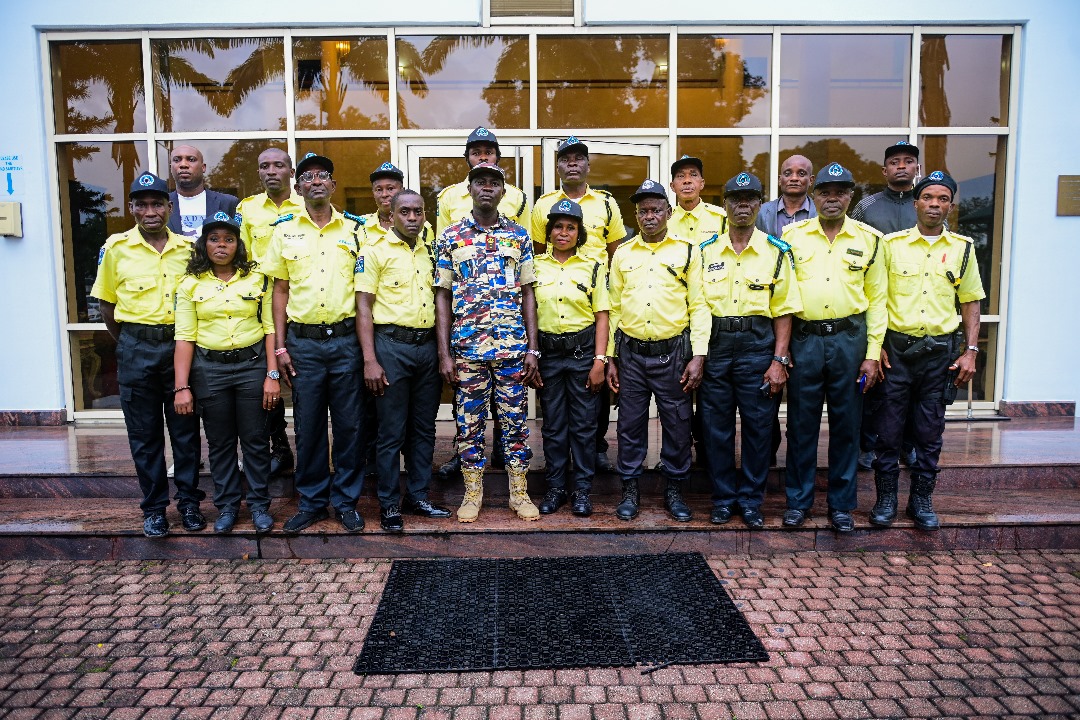Editorial
In Support Of Neighbourhood Watch Revival

Governor Siminalayi Fubara’s decision to reintroduce the Rivers Neighbourhood Watch, also known as Rivers State Neighbourhood Safety Corps, after six years of its establishment, reflects the Governor’s dedication to the security of the residents of the state. The Neighbourhood Watch, which was established by the previous administration, serves as a community-based security organisation with a primary goal of boosting community safety, especially in addressing the prevalent issue of oil theft in the region.
Neighbourhood Safety Corps has been inactive or inadequately funded for approximately six years as a result of several administrative challenges. Governor Fubara recently convened a meeting with the leaders of the security outfit in a private setting, expressing a firm commitment to rejuvenate the organisation. This initiative is accompanied by assurances of improved assistance and incorporation into the state’s security framework.
The leader of the Corps, Wogbo Lawrence, expressed gratitude to the Governor for the initiative, emphasising the challenges the outfit faces in sustaining its operations with limited support. He mentioned that they had successfully kept about 1,150 personnel engaged throughout the 23 local government areas of the state. The Director-General of the agency, Mike Chukwuma, who is a retired Assistant Commissioner of Police and former experienced police public relations officer (PPRO) in Rivers State, also praised Fubara’s decision.
Governor Fubara’s actions exemplify a comprehensive approach to addressing local security concerns by actively involving communities, thereby establishing a potential model for state governments to interact with local residents on security issues. Nevertheless, the success of this initiative will hinge on its proper execution, adequate funding, and sustained support from the community in the long term.
Following the signing of the bill for the establishment of the agency into law by former Governor Nyesom Wike in March 2018, its complete implementation faced obstacles due to allegations from the opposition All Progressives Congress (APC) in the state. The APC claimed that the security structure was intended to intimidate its members during the 2019 elections, leading to a prolonged legal dispute that was ultimately resolved in the Supreme Court.
The Tide highly commends the Governor for his efforts in revitalising the stagnant institution. If implemented, security will be accessible throughout the entire state. This initiative will facilitate the smooth operation of businesses for all residents. By promoting the establishment of individually designed security systems by states, the prevailing security issues plaguing the nation can be effectively eliminated.
Upon the outfit becoming fully operational, it is important that the state government expeditiously address the outstanding salaries owed to the employees by the previous administration. Resolving these unsettled obligations is essential not only for boosting the morale of the workforce but also for optimising operational efficiency. Unpaid salaries have the capacity to reduce productivity and increase discontent among employees, thereby jeopardising the overall efficacy of public services.
Like any conscientious organisation, the Rivers State Neighbourhood Safety Corps has clear objectives. The objectives are (a) gathering information about crime, crime in progress, suspicious activities and crime suspects away from other things; (b) making available such relevant information on crime, crime in progress; suspicious activities and crime suspects to the police or other security agencies that require it; (c) putting structures in place to ensure that hoodlums and cult groups do not have the opportunity to operate within the state.
Others include (d) undertaking routine motorised patrol day and night; (e) reducing the crime rate and ensuring that offenders are identified and made to account for their misdeeds; (f) following up on arrest of offenders to court and ensuring justice; (g) timely reporting of suspicious activities and crimes in progress to the police or other security agencies; (h) improving relationship between the police and the community as it concerns law enforcement.
Also, (i) contributing in maintaining community peace; (j) providing the police with relevant information that will enhance their understanding of how to effectively police the communities and; (k) assisting the police carry out any other lawful activities in maintaining law and order.
Indeed, the underlying objectives of this legislation are commendable as they reflect the desire for a more secure state. Proper execution holds the potential to offer a greater sense of protection to all individuals. However, Rivers people place a strong emphasis on the agency’s neutrality. There is a lasting concern that it could be misused against political opponents, a worry that has been present since its inception in 2018. Therefore, it will be vital to establish transparency and accountability in its undertakings to address these anxieties and cultivate a truly safe environment for all residents of the state.
Unlike the previous administration, there is necessity to effectively fund the enterprise to guarantee its sustainability. Without adequate resources, the organisation faces a risk of stagnation, which could lead to it becoming inactive once more. Strategic financial investment is obligatory for maintaining operational consistency, as well as for promoting innovation and expansion. Giving precedence to financial backing can establish a strong foundation that enables the enterprise to prosper, overcome obstacles, and ultimately accomplish its mission more efficiently in a continuously changing environment.
Through the implementation of the Neighbourhood Watch programme, it is anticipated that the obstacles currently encountered by law enforcement agencies in the state will be alleviated. This initiative aims to address concerns like delayed police responses to emergencies and mishandling of information, ultimately leading to improved public safety. The outfit is expected to generate employment opportunities for the youth, foster stronger relationships, respect, and trust between the organisation and community members. Residents will feel more actively involved in crime prevention and management. Rivers people should rally behind the Governor in actualising this laudable project.
Editorial
HYPREP And The Collapsed Water Tank

Editorial
Resurgence Of Illegal Structures In PH
Editorial
Certificate Forgery, Loss Of Public Trust

-

 Featured4 days ago
Featured4 days agoOil & Gas: Rivers Remains The Best Investment Destination – Fubara
-
Nation5 days ago
MOSIEND Calls For RSG, NDDC, Stakeholders’ Intervention In Obolo Nation
-
Nation5 days ago
Hausa Community Lauds Council Boss Over Free Medical Outreach
-

 Nation5 days ago
Nation5 days agoOgoni Power Project: HYPREP Moves To Boost Capacity Of Personnel
-
Nation5 days ago
Film Festival: Don, Others Urge Govt To Partner RIFF
-
Nation5 days ago
Association Hails Rivers LG Chairmen, Urges Expansion Of Dev Projects
-

 News5 days ago
News5 days agoNDLEA Arrests Two, Intercepts Illicit Drugs Packaged As Christmas Cookies
-

 News5 days ago
News5 days agoTroops Rescue 12 Abducted Teenage Girls In Borno

